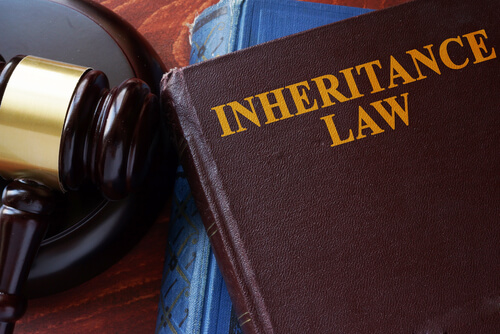Does Inheritance Affect Your Social Security Benefits?
By Kenton Koszdin Law Office on April 26, 2023 | In Social Security Disability
Many people receiving inheritance while on benefits may wonder, “Does inheritance mess with your disability?” It’s a common concern since many government programs like Social Security Disability Insurance (SSDI) and Supplemental Security Income (SSI) are income-based.
Does inheritance affect Social Security? It depends on what kinds of benefits you receive. An inheritance won’t affect SSDI benefits but could affect the amount you get for SSI. The programs are structured differently, so it’s critical to know when inheritance affects Social Security.
If the Social Security Administration (SSA) cancels your benefits, a Social Security disability lawyer can help you appeal the decision.
What Is Considered Inheritance in a Social Security Disability Case?
When it comes to Social Security disability and inheritance, the SSA defines several asset categories of inheritance items that are considered a “death benefit” and not income. As per SSA policy, inheritance items include:
- Real property, like personal effects and household goods
- Non-cash items
- Personal property, like a vehicle
- Trusts and investments
- Liquid resources
The SSA also considers when the beneficiary recipient received the inheritance. An inheritance can be a combination of the above items; the total value may or may not affect your benefits. An experienced Social Security benefits attorney can provide insight into what could affect your status.
Does an Inheritance Affect SSDI Benefits?
The question, “Will an inheritance affect my SSDI benefits?” is concerning for many people. Your family member bequeathed you items that are meaningful to you or assets to make your life more comfortable, but some people may lose valuable health benefits once they receive their inheritances.
Because SSDI is a disability-based benefits program, with benefits awarded depending on your medical condition, disability, and limitations for earning income on your own, it’s not affected by receiving an inheritance.
But although there is no conflict between the amount you receive for SSDI and inheritance assets, if you also receive SSI, then those benefits could be at risk because they are income-based.
Does an Inheritance Affect SSI?
There is, however, a conflict between SSI and inheritance assets. Supplemental Security Income is based on your household income and assets. In 2023, the SSA limited income to:
- Unearned income of less than $934/ month.
- $1,470/ month of income earned through substantial gainful activity.
- Personal assets of $2,000.
Personal assets exclude your house and car. However, any income, whether you earned it from a job, received alimony or were bequeathed assets, will be considered by the SSA when calculating your SSI benefits.
Remember, you have only 10 days from the date you received your inheritance to report it to the Social Security Administration.
Do You Have to Report an Inheritance to Social Security Disability?
The Social Security system has several requirements about Social Security and inheritance:
- You must report any bequeathment within 10 days.
- Failure to report could result in the suspension or revocation of SSI benefits.
- You must let the SSA know if you plan to disclaim the inheritance.
You don’t have to keep an inheritance; you may disclaim it if accepting it disqualifies you from the supplemental security income program.
Can You Refuse an Inheritance to Preserve SSI Benefits?
For some people, claiming an inheritance could mean a reduction or loss in their:
- Quality of life
- Housing situation
- Eligibility to remain in a long-term care facility
- Health care options
If you depend on SSI benefits, you don’t have to take an inheritance. SSI problems can be avoided by disclaiming the inheritance.
There are a few considerations if you choose to disclaim an inheritance:
- If you refuse an inheritance, you cannot control where the assets go subsequently.
- The SSA could consider the disclaiming as “transferring the resource”.
- If you transfer a resource, then you could be ineligible to receive benefits for up to three years after.
There are a lot of considerations when determining the best options to keep your inheritance and SSI benefits. A legal advisor can walk you through the ramifications of keeping an inheritance.
How Can I Receive Both SSI Benefits and an Inheritance?
Can you receive inheritance while on Social Security disability? With some planning and advice from a lawyer, you can. If you’re concerned about the question, “How do I keep my SSI and inheritance money?” your lawyer can help you find options.
Special Needs Trust
The first way to protect yourself if you wonder can an inheritance affect Social Security disability is a Special Needs Trust (SNT). This is a legal vehicle that preserves inheritances and other assets gifted to someone with special needs — assets intended to help improve the person’s quality of life.
The trust is funded with assets belonging to the person with special needs, although they no longer control the assets once they’re placed in the trust.
A Special Needs Trust is drawn up by a lawyer and, unlike other trusts, cannot be controlled by the beneficiary. The attorney names a trustee to administer the trust, acting on behalf of the ward (the person with special needs).
SNTs are for the sole benefit of the trustee and cannot be added to after the individual reaches age 65. SNTs should be drafted by an attorney with experience in doing so to ensure that the trustee’s government benefits eligibility isn’t compromised.
ABLE (Achieving a Better Life Experience)
An ABLE account is a tax-deferred account belonging to an individual with disabilities. It may only be established for someone deemed to have a qualifying disability before they turn 26, and there are annual contribution caps to the account.
In 2023, the cap was $17,000. The account holder (and others) may contribute to the account, such as the person’s spouse, parents, another family member, or a representative payee, like the executor of a will.
ABLE accounts may be a better option than an SNT if the value of the assets to be placed in the account is too small to warrant the expense of setting up an SNT or pooled trust.
There are a few restrictions on ABLE accounts:
- Only one ABLE account is permitted per person
- Only the first $100,000 deposited in the ABLE account is excluded from consideration by the SSA
- Medicaid-eligible individuals remain eligible no matter the ABLE account balance
Additionally, funds in the account must be used only for the benefit of the account holder or used for qualifying disability expenses or dental expenses not covered by Medicaid.
Although an ABLE account will not disqualify an individual from receiving Medicaid, there is a Medicaid payback provision for these accounts. This means that when the account holder passes away, the balance of the account goes to Medicaid to repay the cost of their treatment.
Pooled Trust
A pooled trust is similar to an SNT in that it can be used to benefit someone with disabilities or special needs and can be contributed to by legal guardians, the beneficiary, the beneficiary’s family members, or an estate administrator.
Pooled trusts are established and administered by a nonprofit and contain assets belonging to the benefiting individual. Pooled trusts also have a subaccount for the disabled person to deposit income or assets.
Instead of the trust administrator being a party the grantor chooses, it’s a predetermined entity responsible for managing the entire pooled trust (one that benefits many individuals) and the associated subaccount.
Unlike an SNT, pooled trusts may be funded after age 65 or at any time in the beneficiary’s lifetime. There is a Medicaid payback provision for pooled trusts, although in some cases, the assets in the trust revert to the charity administering the trust instead of going to Medicaid.
Not all pooled trusts are created equal, though if you’re considering establishing one on behalf of yourself or a loved one, it may be best to have a skilled trusts lawyer review the terms of the pooled trust to make sure they benefit the trustee.
Experienced Attorneys Solving Your SSDI and Inheritance Concerns
If you are receiving SSI or SSDI benefits and stand to receive an inheritance, turn to the skilled attorneys at the Kenton Koszdin Law Office, serving clients in Van Nuys and across the San Fernando Valley.
We focus our legal work on Social Security disability benefits and can help you evaluate your best options for preserving your benefits and enjoying your inheritance. Contact us today to schedule a free consultation with a skilled Social Security disability benefits lawyer.





